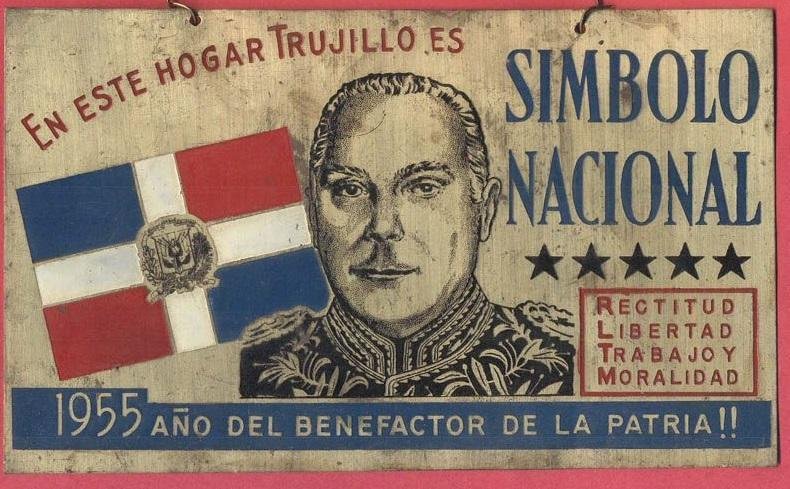The Parsley Massacres
Antihaitianismo tensions bled into the 1937 Pasley Massacres, when Dominican dictator Rafael Trujillo (who supported antihaitianismo and Dominican nationalism) not only hired people to distort Haitian-Dominican history and portray Haitians as hostile foreigners culturally and racially inferior to the Dominican people (a romantic notion of Dominican history still shared by many Dominicans today), but also ordered the 1937 massacres of Haitians in the border areas, where many labored in the cultivation of sugar.
 Propaganda from the D.R. stating, "In this home, Trujillo is a national symbol. 1955 is the year of the patriot!
Propaganda from the D.R. stating, "In this home, Trujillo is a national symbol. 1955 is the year of the patriot!
Rectitude, Liberty, Employment, Morality."
For 50,000 Haitians and Dominicans, the pronunciation of the letter “r” was the difference between life and death. The correct answer (one on the side of life) was “perejil” with a trilled (Dominican) “r” sound. For Creole-speaking Haitians, the “r” sound was difficult to pronounce – those who answered with a wide, flat (Haitian) “r” sound were not left alive.
This is like killing people who say puh-JAH-muh-z and only sparing those who will say puh-JAM-uhz! The irony? Trujillo’s own grandmother was Haitian (dictators aren't known for remembering their roots). A pattern emerged in Haiti, one where new leaders would emerge, steal and drain Haitian economy, only to be replaced by another authoritarian leader.
This discrimination had nothing to do with skin tone, yet plenty to do with the class-based systems colonial rulers used to measure and determine people's social status.
